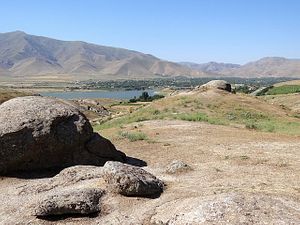By all indications, the first four months of Shavkat Mirziyoyev’s tenure as Uzbekistan’s head have seen the new leader place his own stamp on the presidency. While certain of Tashkent’s broader foreign policy prescriptions — avoiding the CSTO and Eurasian Economic Union; preventing any new foreign military bases on Uzbekistan’s territory — have remained steady, Mirziyoyev has moved toward something of a thaw in relations elsewhere. From broadening the quota for permissible travel to Mecca, to rhetoric expressing support for “resetting” relations with Tajikistan, to, just this week, helping oversee the first direct commercial flight to Dushanbe in a quarter-century, there’s been no shortage of reasons to spot a relative softening in Tashkent.
If we’re looking at public statements, this weekend may have seen even further continuation down the path toward a thaw. As AKI Press reported, Uzbekistan’s foreign minister, Abdulaziz Komilov, spoke about regional water access at a press conference in Tashkent. Touching on a recent UN proposal on water management, Komilov expressed hope that regional governments “will be able to start a mutually interested dialogue.” Gazeta reported that Komilov added that friendly relations with neighbors — presumably both Kyrgyzstan and Tajikistan — remained an “important foreign policy priority” for Uzbekistan.
Viewed in a vacuum, the language is anodyne, little more than diplomatic boilerplate expressing perfunctory positions. However, for Uzbekistan, which under late President Islam Karimov had threatened war over water resources, such phrasing is more notable. Taken against Uzbekistan’s prior statements — as well as in conjunction with recent moves out of Tashkent — Komilov’s statement may point toward something of a shift in how Uzbekistan’s leadership views its neighborly relations.
After all, it was only a year ago that Mirziyoyev, then operating as prime minister, sent Tajikistan’s prime minister a letter that rankled Dushanbe’s higher-ups. Mirziyoyev wrote that Tajikistan’s planned Rogun Dam, set to be the world’s tallest dam, is a “risky” piece of “Soviet megalomania.” That letter followed a 2015 missive in which Deputy Prime Minister Rustam Azimov slammed the World Bank for an “unacceptable” report on Rogun’s regional effects. To be fair, both Azimov’s and Mirziyoyev’s statements were climb-downs from Karimov’s prior hints at war but there was little hiding their displeasure all the same.
But Komilov’s recent statements appeared to carry none of the vitriol seen in prior commentary out of Tashkent. That’s not to say Uzbekistan is any happier with the prospect of a completed Rogun. And it’s also possible we’re reading the tea leaves a bit too closely. But given the past four months, it’s just as likely that Tashkent may be opening up a space for dialogue — and for compromise — that appeared, for years, closed.

































